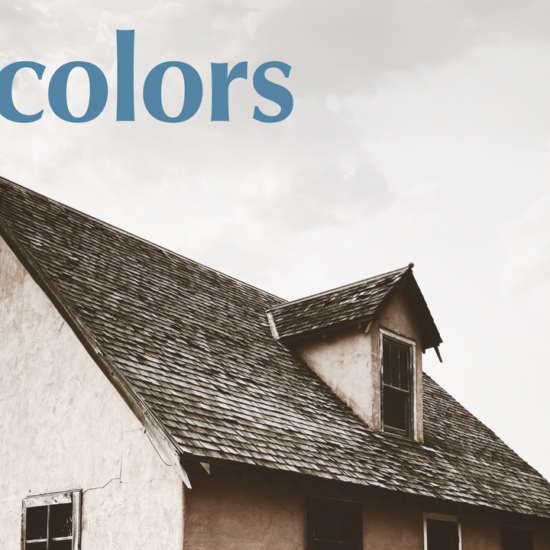
This story about “Corsage” and Vicky Krieps first appeared in the International Film issue of TheWrap’s awards magazine.
In “Corsage,” Vicky Krieps does more than give a hauntingly convincing portrayal of the iconic “Empress Sisi,” the 19th-century Austrian monarch Elisabeth, Empress of Austria and Queen of Hungary, as familiar to central Europeans as Queen Elizabeth was in current times. She also brings her own wit, politics and feminist views to what has been hailed as a modern interpretation of a tragic tale of celebrity, in collaboration with writer-director Marie Kreutzer. Krieps’ performance, which won her the Best Performance award in the Un Certain Regard section at this year’s Cannes Film Festival, required her to endure breath-defying corsets and learn to ride sidesaddle, among other tortures of 19th-century womanhood. Still, the forced ennui of life in a gilded cage may have been the most exquisite torture of them all and the one at the heart of the role.
The Luxembourgian actress first leaped into U.S. imaginations as the muse of fashion designer Daniel Day-Lewis in the lyrical, sly “Phantom Thread” by Paul Thomas Anderson. It turns out that experience of the harsh glare of celebrity led directly to “Corsage.” She talked with Wrap editor-in-chief Sharon Waxman at the Toronto Film Festival.
You’ve described your performance in “Corsage” as an act of rebellion. And I wanted to start there, to understand what you meant by that.
So, it was my idea.
The movie was your idea?
Yes. Marie was not quite convinced in the beginning, because she thought it was too kitsch and cliché and maybe superficial. Because the figure of Sisi in Austria is really the princess figurine on top of the cake. What got her attention is she could feel some act of rebellion in reading about her. If you read about Empress Elisabeth, you can sense that she was at least trying to rebel against certain things, the rules of her time, especially the rules of being a woman of her time. That was the initial thing that got Marie interested and made her write the script.
And that was mine, too, I think. I read her biography when I was 15. And reading it, I was too young to understand what it is to be a woman. But I think at 15, I could already feel the walls and the demands of society: How do you look as a girl? What do you wear? How do you behave? You have to be nice and kind and sweet and cute. I wasn’t even brought up that way, because my parents raised me freely. But it was enough that there was some sort of society that gave me this feeling and made me feel like I have to behave and fit into the role of being a girl.
And then I became an actress. And when you’re an actress, it’s even worse. Because you want to be a mother and beautiful and sexy and successful and independent, and we demand too much of ourselves and we know it. As an actress, we are also being observed—and I think Elisabeth was suffering a lot under the public eye. Maybe she was the first victim of celebrity culture.
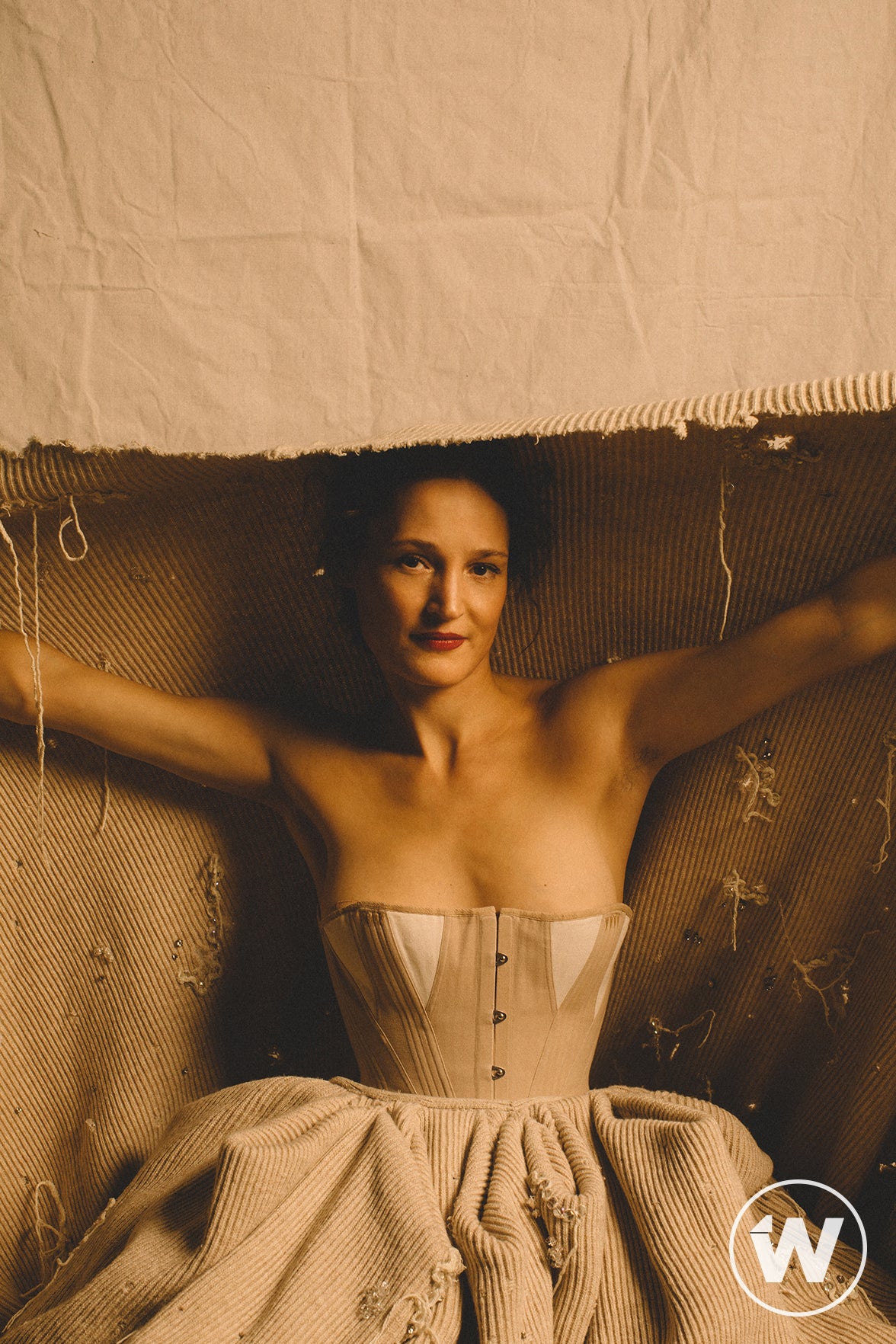
Of course, you know about Princess Diana and it’s almost the equivalent of that in the 1870s.
I think it’s the same with Princess Diana: She was adored. When Sisi was 15, they were drawing her. (It was) like Instagram of the time: They made little drawings and they were handing them out to people all over, saying she’s the most beautiful woman in Europe. So even though they adored her, they also wanted to control her image. She was forced to be the most beautiful girl of Europe, she had to be slim. And she had to have beautiful long hair once the image was given to her. She was in this prison and golden cage because of society, and she was then also putting herself in that prison. Because you become this thing, you become more and more alone. And I think that’s why I wanted to talk about this. Because today, we are all also becoming more and more alone and lonely, because of this weird gaze that has been added by the Internet. Now there’s this constant idea of like, “How do I look from the side right now?” And I think now, because of Internet and social media, all of us have our image everywhere, which is a new thing.
It seems very clear that you’re talking about yourself now as an actress — someone who has people staring at her or watching, just to feel a connection to you and somehow feel that they know a public figure. You said you grew up very freely, but I don’t really know what that means.
I don’t really care what people think about me, if they like or if they don’t like it. And it took me time to understand why. Why do I not care? It seemed normal to me. And it’s not that I’m stronger than anyone or I’m cooler. I looked back and I understood that’s the way my parents brought me up. I like to say they were hippies. They were normal.
Our house was at the at the edge of the city. And there was forest around and a field. So I was always in some kind of grass (or) lying somewhere in the dirt. I remember coming from school and saying to my friends, “Let’s play in the mud,” and they were like, “No, we cannot. My mom will be angry.” And I was like “What? No.” And then they said to me, “OK, if you roll yourself in the mud, we will give you a bag of sweets.” And I was like, “Yeah, no problem.” Because I knew if I came home my mother would never be angry. She studied art. She was an artist in my family. I think she still is now. I mean, she just came back from two weeks of nudist camping with her best friend.

When you decided you wanted to be an actress, you didn’t think about what would happen if you were successful?
No, I didn’t. First, I didn’t ever think I would be in movies. I thought I would do theater only. But then something happened. I could feel it myself. It was something between me and the camera, it felt like the camera was alive. I can feel how it is like a dance. I feel what the camera likes and doesn’t like. It’s very intimate and personal. When I work with the camera, to me, it’s all about what’s happening then and there. And I never think about what is coming on top of that.
But that touched something in you as an artist as well.
Ever since that thing happened, I feel I am like a scientist or something. I’m studying something about humans. Every time I feel like they send me to some kind of jungle, and I sit there and I study this plant. Only I see it. Sometimes I find it and I get something out of it. And sometimes I don’t. But I always go with the same curiosity of, “What will happen this time? What am I going to find?” So when I do what I do, I’m really in my own world. And I don’t ever think of showing it later.
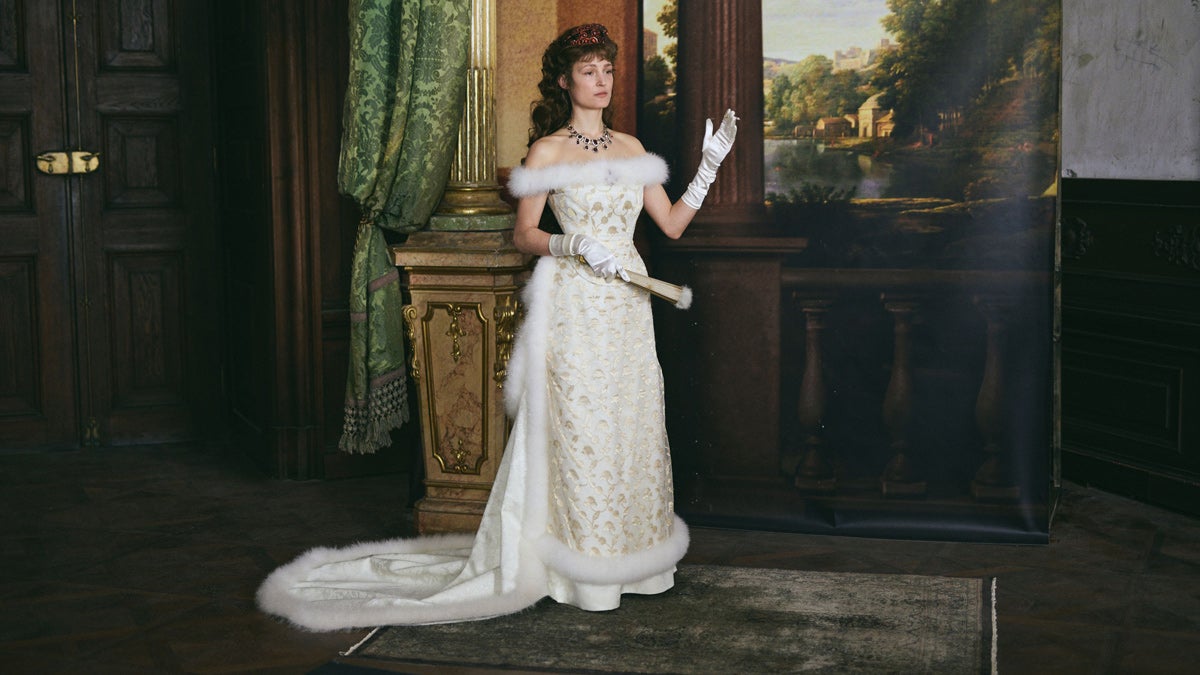
Most of us came to know you in “Phantom Thread.” The experience of the movie being successful and bringing attention to you led to this film as well.
Yes. While I was doing “Phantom,” it felt exactly like this jungle. Daniel (Day-Lewis) being the king of the jungle, and me coming to study a little plant in the jungle and gradually making my own space in his world. So I think Paul Thomas Anderson, the director, and Daniel let me know that it’s OK to be this weird scientist. They gave me the absolution, they gave me the feeling it’s OK to be who I am and to do it the way I do it. But what no one could prepare me for was what happens when it’s seen. And suddenly people look at you and go, “Oh, you’re the girl from ‘Phantom Thread.’” “No, I’m me.” It’s very weird, but the first so many months I always wanted to go and have coffee with each person (who saw the film). “Oh, you saw my movie? Really?” Because for me, it’s about my plant. And someone saw my plant. And I had to learn how to deal with this more common look that you get. Suddenly, it’s not personal, because you have then become the movie for people.
And it was suddenly very hurtful for me, because I felt I was disappearing. I felt like I was constantly bumping into invisible walls. As if everything I did was wrong, because I didn’t know how to play the game. Because I didn’t want to play the game of, “What are you wearing? How do you look? What do you say? What do you not say? How do you behave?” And I couldn’t. I was really suffering from it. So I retreated into my forest again.
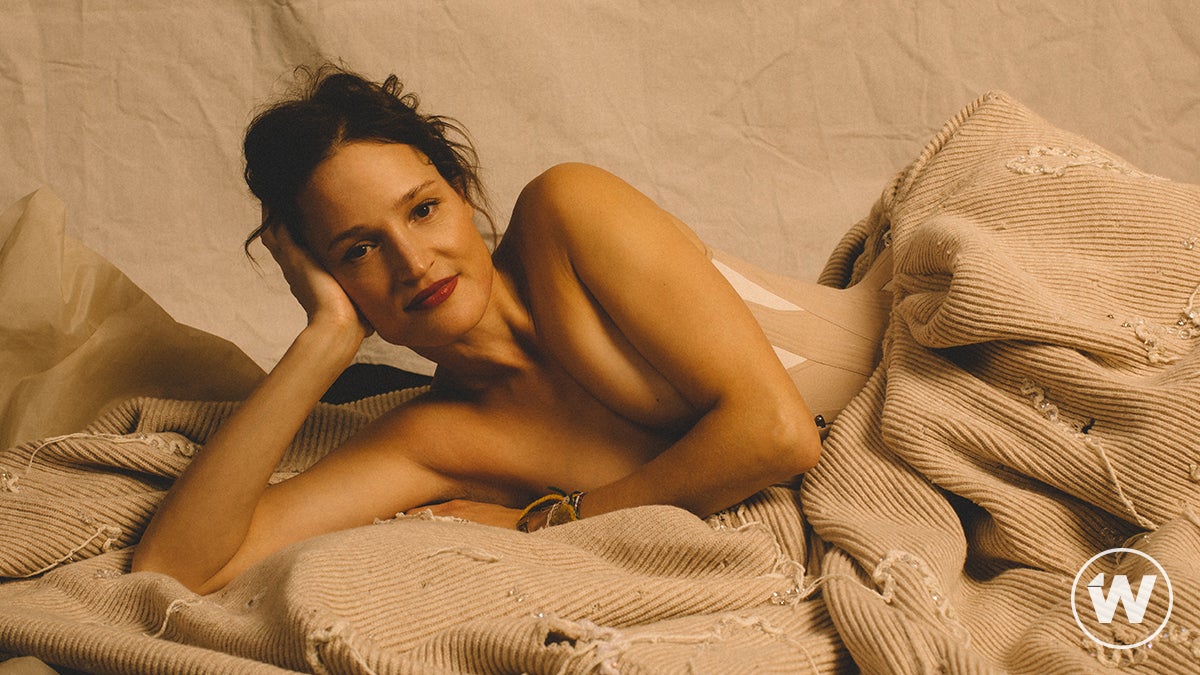
And then, Marie. I came back from L.A., I had just finished the whole press tour, and I opened my mailbox and there’s the script. And I opened the script, and it had a postcard saying, “Vicky, you were right. I did go to the archive. And I think there’s something here, and here’s the script.”
Yeah, I had goosebumps. And then holding the script in my hand, I started crying because I realized that now everything made sense. Because coming from L.A., I had now lived what Sisi had lived in the 19th century, in a different way, and definitely not nearly as famous as she was. But coming from where I came from, that was already a lot — and too much. And then and there I decided why I want to make the movie, because I want to talk about this phenomenon when you are put into a place, and people decide you (are) something to be seen.
Now that I’ve heard you explain the context, I have to ask: How do you feel about pursuing this life? Because that’s not going to change. Yeah. At some point I was like, “I don’t care. I can grow salad.” But then I thought, “Who’s telling me I cannot do it my way?” In a way, it’s my duty to have the guts and to say that I do this in my way. And it just fell off me, I dropped it like a glove. And now I’m doing what I do, which is the same as before. But I’m doing what I feel my heart is telling me.
Read more from the International Film Issue here.
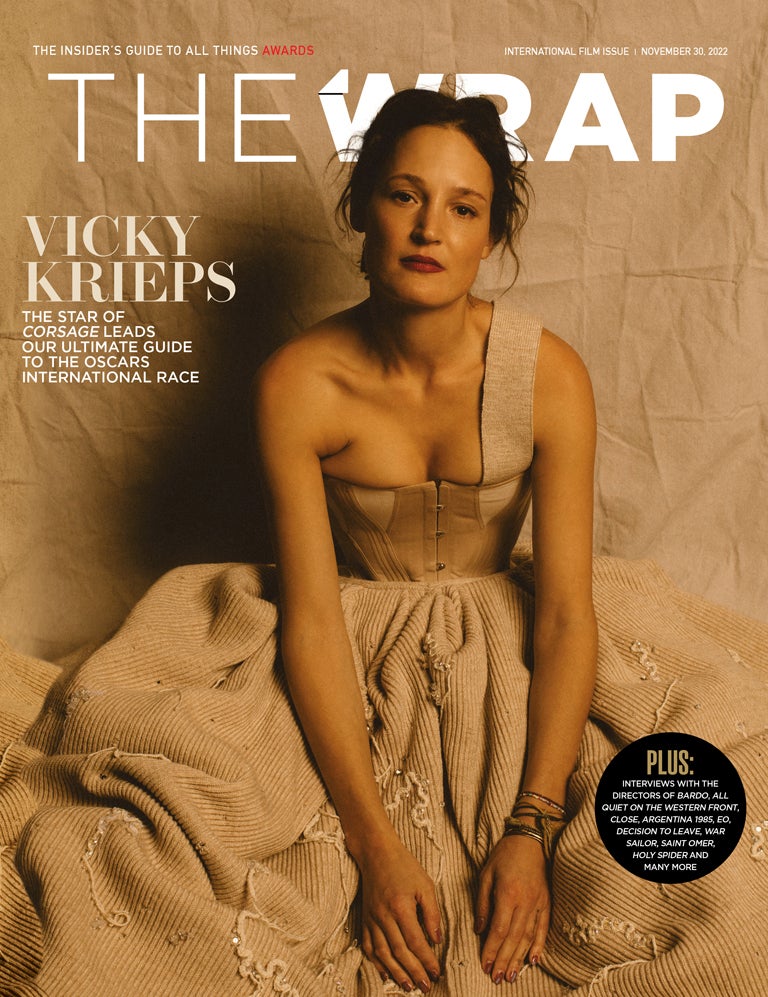
Monica has a BA in Journalism and English from the University of Massachusetts and an MS in Journalism and Communications from Quinnipiac University. Monica has worked as a journalist for over 20 years covering all things entertainment. She has covered everything from San Diego Comic-Con, The SAG Awards, Academy Awards, and more. Monica has been published in Variety, Swagger Magazine, Emmy Magazine, CNN, AP, Hidden Remote, and more. For the past 10 years, she has added PR and marketing to her list of talents as the president of Prime Entertainment Publicity, LLC. Monica is ready for anything and is proudly obsessed with pop culture.










